Bird Term: Brood Parasite
Brood parasites are birds that rely on other birds, often of a different species, to raise their young. Brood parasitism occurs in organisms other than birds, including fish and insects, but we'll focus on a few well-known bird examples here.
This type of breeding strategy allows biological parents to avoid the stress and time involved in raising young.
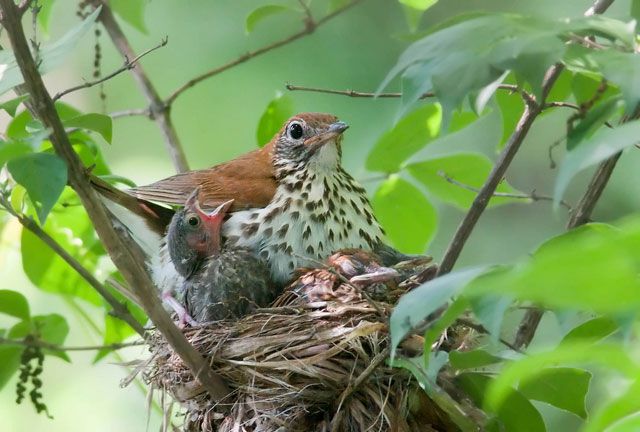 Brown-headed Cowbird chick in Wood Thrush nest by Kelly Colgan Azar (CC BY-ND 2.0)
Brown-headed Cowbird chick in Wood Thrush nest by Kelly Colgan Azar (CC BY-ND 2.0)
The strategy often involves laying eggs in several different nests in order to maximize the chances of young being raised successfully to fledge. The parasite bird also often removes an egg from the host parent to reduce discovery and improve their own offspring's chances of survival. Brood parasite birds generally have a shorter incubation period (with incubation actually starting internally within the biological mother bird) which also gives their offspring a head start over its adopted nest mates.
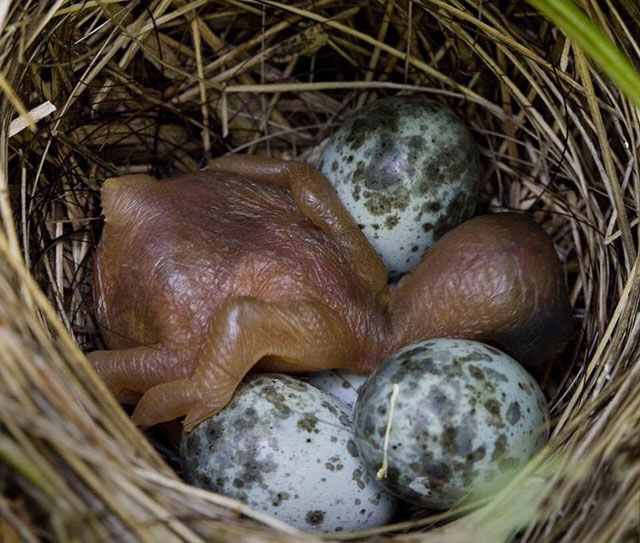 Common Cuckoo chick in host nest by Per Harald Olsen (CC BY 2.0)
Common Cuckoo chick in host nest by Per Harald Olsen (CC BY 2.0)
A big risk with this strategy is discovery of intruder eggs. Some host species have learned to recognize intruder eggs in their nest, which may lead to total abandonment of the nest. Sometimes the discovery is made after hatching, and the parasitic chick is expelled from the nest. Another risk is using a host with a diet unsuitable for the growing chick. American Goldfinches are vegetarian; Brown-headed Cowbirds have an omnivorous diet and will not survive to fledge from finch parents.
Cowbirds and cuckoos are probably the most well-known species of brood parasites in the bird world.
The Brown-headed Cowbird is widespread across North America. This species has at least 221 known host species, from hummingbirds to birds of prey.
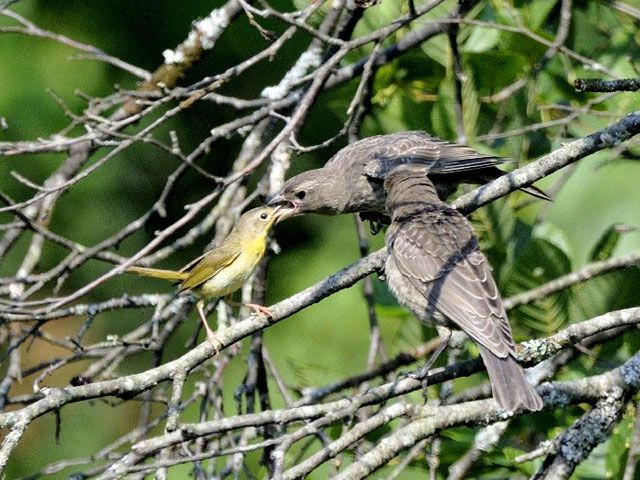 Common Yellowthroat feeding Brown-headed Cowbird by Bill Thompson (CC BY 2.0)
Common Yellowthroat feeding Brown-headed Cowbird by Bill Thompson (CC BY 2.0)
The Common Cuckoo of the Old World has wide distribution across Europe, Asia, and Africa. It takes a female cuckoo just 10 seconds to remove one egg and lay her own in a host's nest. Common Cuckoos have been recorded using over 100 host species. They are generally much larger than their hosts and the quickly-growing chick typically will remove all of the other eggs from the nest itself.
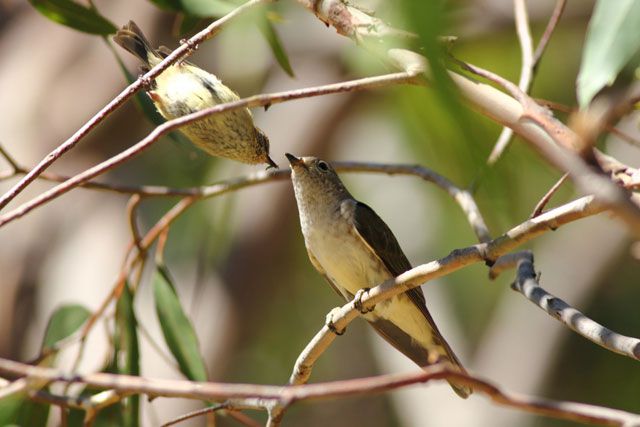 Brown Thornbill feeding Common Cuckoo chick by Wayne Butterworth (CC BY 2.0)
Brown Thornbill feeding Common Cuckoo chick by Wayne Butterworth (CC BY 2.0)
Have you ever seen a Brown-headed Cowbird, Common Cuckoo, or other brood parasite being fed by a host parent?

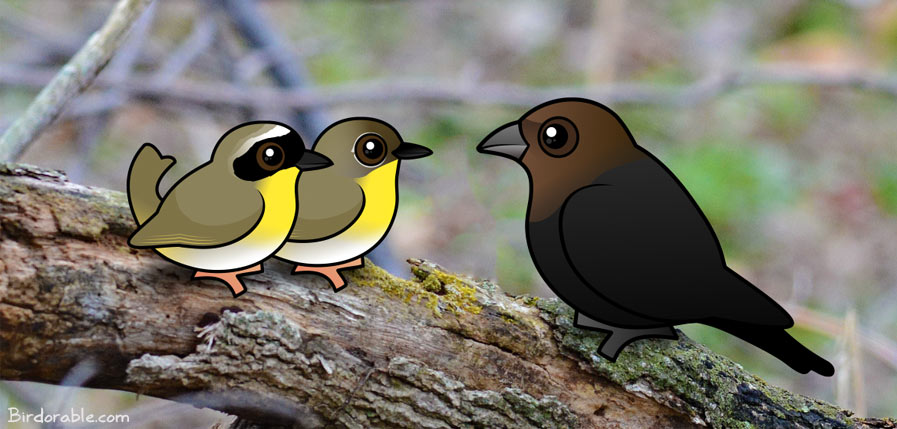




Comments
Leave a comment
Thank you!